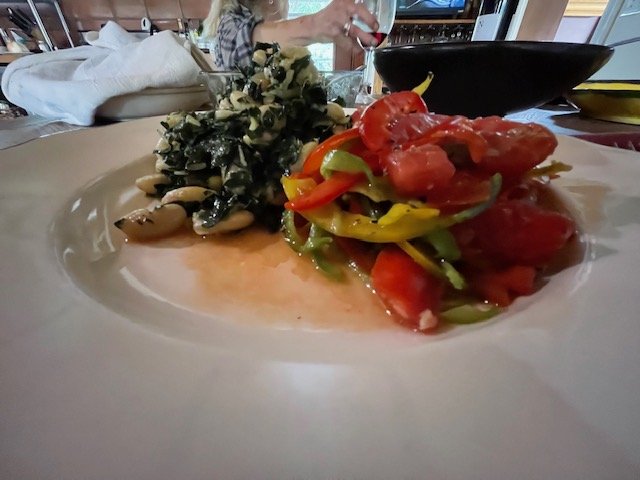Tired of Over-Thinking Food?
Decision fatigue and feeling inconsistent with the “right” choices for your health goals is a solvable issue!
Automate new patterns for success!
By: Laura Christoph, PhD, NBC-HWC
Head Nourishment Coach, Three Point Balance
Tired of thinking about food? Me too! After 15 years of teaching nutrition in the college classroom and writing nutrition textbooks, the last thing I want to do is go home and meal prep, spend hours in the kitchen cooking dinner, or take up headspace with thoughts of food.
We make roughly 200 food decisions per day. In order to reduce decision fatigue, we need to automate some patterns. You likely already have some automated habits that are positive, like packing your lunch for work, cooking protein for dinner, or preparing a smoothie for breakfast. And you likely have some automated decisions that are not as healthy as you’d like, such as grabbing a chocolate every afternoon at 3pm or skipping lunch during hectic days at work.
When we make autopilot decisions that don’t serve us, most people tend toward black and white thinking, trying to “fix” their poor decisions by implementing strict diet protocols or obsessing over details that might be more appropriate for a professional body builder.
At Three Point Balance, we would rather help you build off of your positive habits and help you identify the behaviors that are not in line with your values. Then, slowly but surely, we turn those patterns that don’t serve you into healthier automated routines that give you room to think about more important things, like living your best life!
Lets take my client, “Sally”.
Sally was frustrated that she “just couldn’t follow through” with her nutrition intentions and asked me if she should try something that would give her more restrictions like keto. We explored her experiences to better identify what “not following through” means, and found it came down to a pattern that she had since high school: Walking directly to the cabinet and eating crackers after work. This habit did not feel in alignment with her value of eating thoughtfully and consciously. Together we explored her current behavior and came up with some alternatives to experiment with.
Coaching Principle #1 - Awareness:
First, identify the current behavior pattern: a trigger (which could be social, environmental,, physical or psychological) leads to a thought or feeling, upon which we take action. If the consequence of that action is undesirable, we might consider working on changing it!
Here is an outline of Sally’s behavior pattern:
Trigger: Walk in the house
Thought/Feeling: I am tired and/or hungry
Action: Wander to the cabinet. Eat crackers
Consequence: Eating out of alignment with food framework (short term); Not reaching weight loss goals (long term)
Coaching Principle #2 - Nourish
Once we identified the trigger, we were able to intervene. We reframed the trigger to which Sally reacted mindlessly, to a cue to which Sally can respond to thoughtfully (nourish-fully) with a new habit!
We created two new habits based on an initial Body Scan.
First, Sally intervened upon walking through the door: “When I walk into the house, I will thoughtfully check in by asking myself, Am I tired or hungry?”
Then, Sally created two choices based on the information she received from the check in:
Hungry:
Cue: I am hungry
Habit: If hungry, have a high protein and fiber snack ready to go in the fridge (such as hummus and carrots). Sit at the table and eat the snack.
Reward: More nourishment for the day and a habit that aligns with food framework (short term); Weight loss (long term).
Tired:
Cue: I am not hungry, I am tired
Habit: If tired, go upstairs and read a book for 15 minutes. Then come down and make dinner
Reward: Nourishing the need for rest and relaxation with something other than food; Weight loss (long term).
Results!
Sally practiced this routine for a full month. She started noticing that when she took the time to check in with her body, she received a whole lot of inner wisdom that a diet plan could not teach her. She felt more confident and energized that she was living out her values, and as a bonus, she lost a few pounds.
Your Turn . . .
What is a behavior pattern you are currently working on? How would it feel to get curious and intervene at the sticky point rather than doing a full diet “overhaul”?





